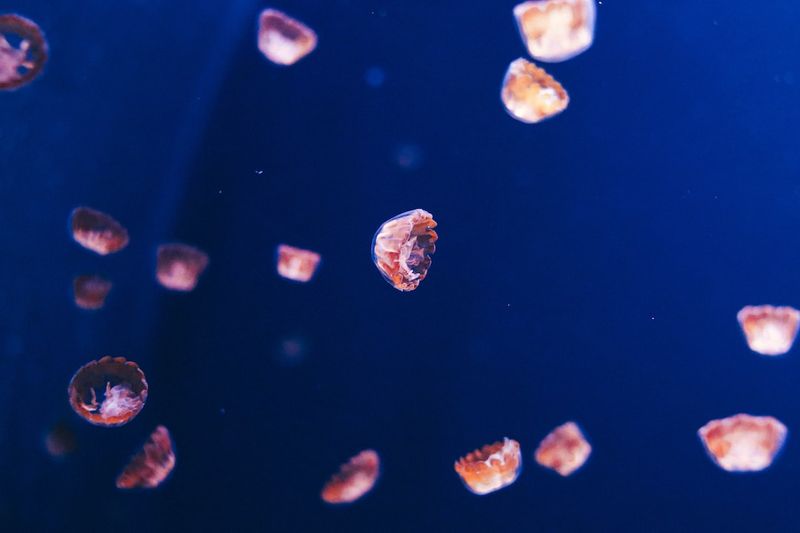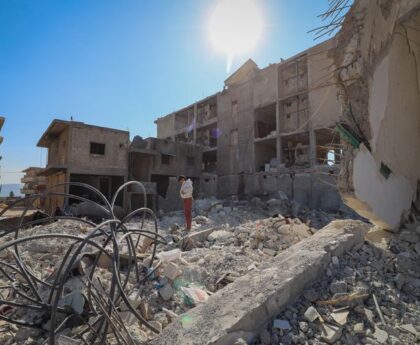New Orleans Faces Drinking Water Crisis as Saltwater Intrusion Threatens Mississippi River
Introduction
New Orleans Mayor LaToya Cantrell has declared a state of emergency as saltwater intrusion into the Mississippi River poses a significant threat to the region’s water supply. With river volume projected to reach historic lows in the coming weeks, the Gulf of Mexico’s saltwater is penetrating upstream in Louisiana, affecting Plaquemines Parish and potentially impacting communities along the river. Local, state, and federal officials are working together to find solutions to protect water systems and intake points.
The Context
The issue of saltwater intrusion in the Mississippi River is not new to Louisiana. In 1988, a similar crisis occurred, and valuable lessons were learned from that experience. However, the current situation is compounded by the worsening drought conditions and the lack of relief from dry weather patterns. Climate change and coastal erosion aggravate the problem, making it imperative for local communities to stay informed and rely on credible sources for updates.
The Impact on Water Supply
The intrusion of saltwater poses a direct threat to the region’s drinking water supply, particularly in Plaquemines Parish, where the Boothville Water Treatment Plant has been affected. Residents and businesses from Empire to Venice are already experiencing the repercussions. The local authorities have taken measures to mitigate the situation, such as constructing an underwater barrier sill. However, these efforts have proven insufficient as the saltwater has breached the sill’s elevation.
Looking Ahead
Officials are now implementing additional measures to delay the saltwater intrusion further. The construction of a larger sill is set to prolong the river’s protection by an estimated 10 to 15 days. However, minimal rainfall is expected, and the river’s water level is anticipated to continue dropping. The collaboration between local, state, and federal authorities is crucial in determining long-term solutions to protect water systems and intake points.
The Philosophical Discussion
The issue of saltwater intrusion highlights the delicate balance between humanity and the natural environment. It is a stark reminder that human activities, such as climate change and groundwater depletion, contribute to the degradation of our ecosystems. Furthermore, this crisis raises philosophical questions about the rights and responsibilities concerning water resources.
Water, as a fundamental element of life, is a shared and finite resource. The example of New Orleans illustrates the interdependence between natural systems and human communities. It calls for a reevaluation of our relationship with nature and a shift towards sustainable water management practices.
The Role of Government and Society
In times of crisis, such as this drinking water emergency, effective governance plays a crucial role in addressing the situation. Mayor Cantrell’s declaration of a state of emergency demonstrates prudent decision-making and a commitment to protecting the public’s welfare.
However, it is not solely the responsibility of the government to solve this crisis. Society as a whole must recognize the significance of collective action. Individuals can contribute by conserving water, supporting local initiatives that prioritize sustainable water management, and holding elected officials accountable for long-term strategies to safeguard our water resources.
Editorial
The saltwater intrusion crisis confronting New Orleans is a wake-up call for the entire nation. As climate change reshapes our planet’s natural systems, it is becoming increasingly evident that no region is immune from its effects. The well-being of communities, their economies, and the ecosystems they depend on are at stake.
Investing in robust water infrastructure, sustainable land management practices, and comprehensive climate change mitigation measures is essential. Furthermore, educational campaigns that raise awareness about the importance of water conservation and responsible resource use are crucial.
The United States must act as a global leader in mitigating and adapting to climate change. By prioritizing sustainable practices, investing in renewable energy sources, and engaging in international cooperation, we can begin addressing the root causes of these environmental crises.
Advice for the Public
In times of environmental emergency like this, it is important for the public to stay informed and rely on credible sources for updates. Avoid spreading misinformation that may cause panic or hinder the authorities’ efforts.
Additionally, individuals can contribute to the solution by conserving water in their daily lives. Simple actions like turning off faucets when not in use, fixing leaks promptly, and using water-efficient appliances can make a significant difference.
Supporting local initiatives and organizations that prioritize sustainable water management is also crucial. By getting involved and advocating for resilient infrastructure and responsible resource use, individuals can help build a more sustainable future.
In Conclusion
The threat of saltwater intrusion into the Mississippi River serves as a stark reminder of the challenges posed by climate change and human impact on the environment. New Orleans and the surrounding communities face a pressing drinking water crisis that demands swift action and collaboration at all levels.
By acknowledging the intrinsic value of water resources and embracing sustainable practices, we can protect the well-being of current and future generations. This crisis should serve as a catalyst for transformative change, prompting a comprehensive reevaluation of our relationship with the environment and our responsibility to preserve it.

<< photo by Nastya Dulhiier >>
The image is for illustrative purposes only and does not depict the actual situation.
You might want to read !
- Xavi Returns: A New Era Begins as FC Barcelona Takes on Celta Vigo
- Xavi Returns to Camp Nou: A Game-Changing Homecoming Against Celta Vigo
- Exposing the Controversies: Unveiling the Truth about ex-Operation Underground
- “Army Corps of Engineers’ Ambitious Plan: Barging 36 Million Gallons of Freshwater to Tackle Water Crisis”
- “Alien Invasion Alert: Exploring Hulu’s Thrilling New Series, ‘No One Will Save You’”
- Emma Roberts Faces Backlash: Examining Allegations of Transphobia and Misgendering
- Chicago’s Battle for Clean Air: Tackling World’s Worst Air Quality | Crain’s Chicago Business
- Climate Crisis Exacerbated: Deadly Tropical Storm Idalia Ravages South Carolina
- The Environmental Impact of Burning Man: A Traffic Jam of Climate Protesters
- Climate Change Impact: Hillary’s Historic Southwest Rainfall Signals Growing Environmental Concerns




